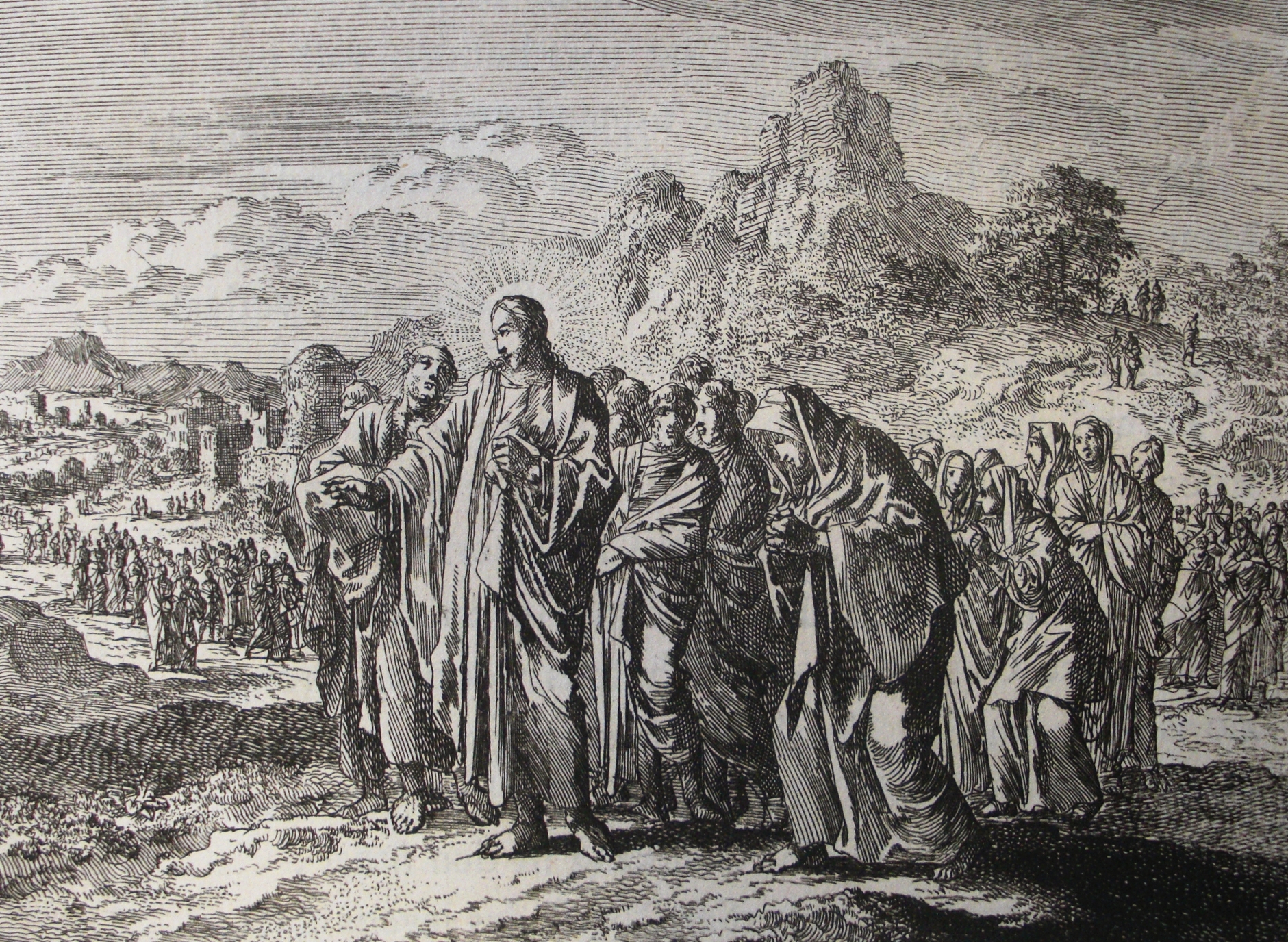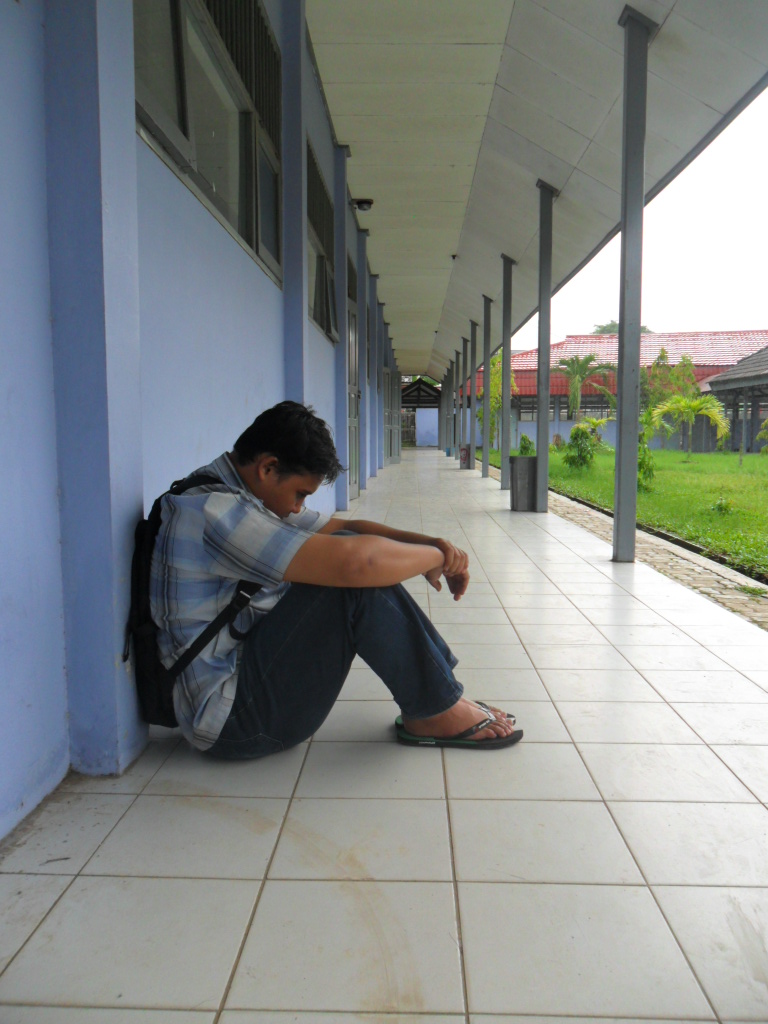Lenten Sunday4 A (26 Mar 2017)
Homily of Fr. Paul Panaretos, S.J.
Refashioned Spirit-Shaped
The first character of Lent is this: “it recalls baptism or prepares for it.” These past 50 years we have recovered Lent’s primary character: a catechumenate is the norm in parishes; and parishioners celebrate its various liturgies with the Rites of Christian Initiation of Adults and of Children. Happy is our recovery of Lent’s primary character; in my early youth my elders and I knew only its second character, its “penitential spirit.”1
_-_James_Tissot.jpg) Penance reminds us that human qualities and worldly realities are not goals of Christian living: Jesus is. No penance is an end in itself; it seeks to help us stay on course to Jesus and deepen our friendly union with him. How we and Jesus are friends differs from one of us to the next. It may begin as it did with the man blind from birth. Jesus may enlighten us later in our lives, or repeatedly. The more Jesus enlightens us, clears our inward sight and frees our hearts, the more we share with Jesus—we have his attitude.2
Penance reminds us that human qualities and worldly realities are not goals of Christian living: Jesus is. No penance is an end in itself; it seeks to help us stay on course to Jesus and deepen our friendly union with him. How we and Jesus are friends differs from one of us to the next. It may begin as it did with the man blind from birth. Jesus may enlighten us later in our lives, or repeatedly. The more Jesus enlightens us, clears our inward sight and frees our hearts, the more we share with Jesus—we have his attitude.2
The gospel of Jesus and the man blind from birth drips with irony: it is both sad and humorous. Sad because of the conflict in the synagogue and the fear it induced in the man’s parents and others. Sad-humorous because the leaders wanted proof and refused “to see” a man restored to sight. This gospel offers much to ponder. I call attention to what the man whose sight Jesus restored possessed: Jesus’ attitude. When he was interrogated the man used the same language Jesus spoke, soon to him, before to the woman of Samaria3 and later at his arrest and trial4: I am.
In John’s Gospel Jesus said that phrase often. People have long noted it echoes God’s name God gave Moses: tell the Israelites [enslaved in Egypt] that I AM sent me to you.5 God was clearly interested in the suffering. Jesus showed that God’s concern continues.
 In today’s gospel the man who had been blind braved his interrogators with Jesus’ language, I am (the man). He said that before he met Jesus with his seeing eyes. Noticing that triggered this new insight: healed by Jesus causes us to be like Jesus. Healed by Jesus does not cause us to mouth Jesus’ words in an empty fashion. Baptism into Jesus—our healing from world-oriented living to spirit-led godly living—causes us to act like Jesus, our healing saviour: with greater courage, feeling and generosity for and with others.
In today’s gospel the man who had been blind braved his interrogators with Jesus’ language, I am (the man). He said that before he met Jesus with his seeing eyes. Noticing that triggered this new insight: healed by Jesus causes us to be like Jesus. Healed by Jesus does not cause us to mouth Jesus’ words in an empty fashion. Baptism into Jesus—our healing from world-oriented living to spirit-led godly living—causes us to act like Jesus, our healing saviour: with greater courage, feeling and generosity for and with others.
We who have been baptized recall our baptism. We don’t recall a date; we recall our daily healing by dying and rising with Christ Jesus. Baptism-healing is new each day because Jesus fortifies it daily with his eucharist. Those preparing for baptism cause us to remember, too. Their anticipation and our prayer for them deepens Jesus’ spirit-life in us so we resemble him more and more.
In your daily 15 minutes with Jesus this week
- Rest in our triune God.
- Ask the man blind from birth to present you to Jesus.
- Chat with Jesus: praise him for dying and rising for us; thank him for baptizing us with his Spirit to be like him.
- Ask Jesus for grace to live our baptisms for and with others with greater courage, feeling and generosity.
- Close saying slowly the Lord’s Prayer. Jesus gave it to us to grow more like him, alive with his healing Spirit.
Link to this homily’s Spiritual Exercise
____________
- Constitution on the Liturgy, 109 of the Second Vatican Council.
- Philippians 2.5; 1Corinthians 2.16.
- John 4.26, last Sunday’s gospel; This first use is followed by: 6.35, 41, 48, 51; 8.12, 24, 28, 42, 58; 10.7, 9, 11, 14; 11.25; 12.32; 13.19; 14.2, 6; 15.1, 5; 17.24; 18.5-6, 8.
- Arrest, 18.5-6, 8; trial, Mark 14.62; Luke 22.70.
- Exodus 3.14.
____________
Wiki-image Blind man washes in pool at Siloam PD-US; Pool of Siloam PD-US


_-_James_Tissot_-_overall.jpg)



_-_James_Tissot_-_overall.jpg)
